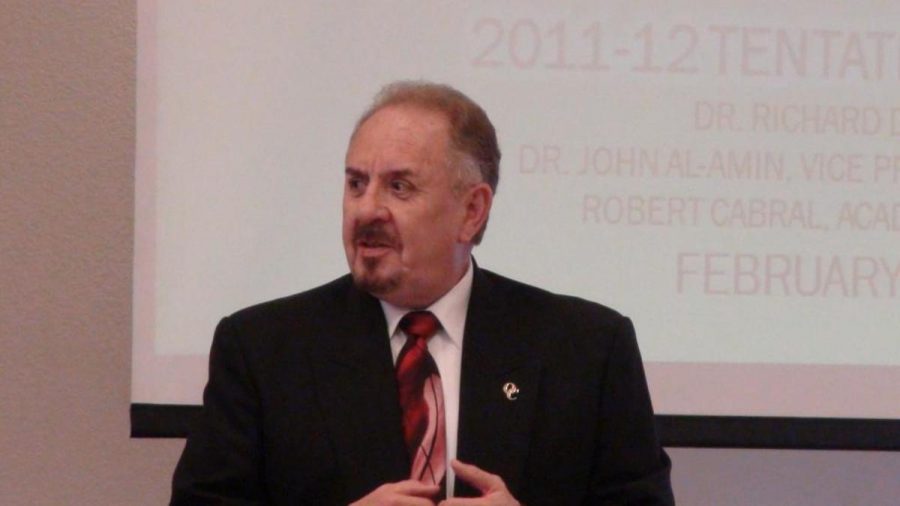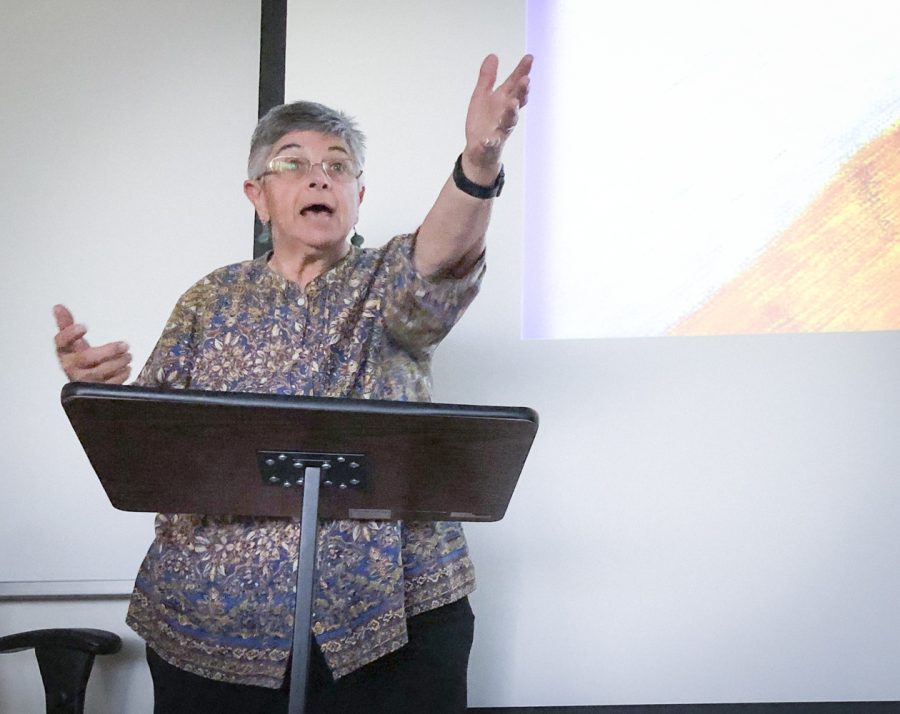Accreditation results were explored in a forum held at Oxnard College on Feb. 23, which explained the findings, actions, sanctions and recommendations given by the 2010 Accreditation Team member visit in their OC team report.
The Accreditation forum was presented by OC President Dr. Richard Duran, Executive Vice President Dr. Erika Endrijonas, Academic Senate President Mr. Robert Cabral and STEM Grant Director Dr. Cynthia Herrera. The forum also addressed the District Recommendations stated in the report.
“You have to be an accredited school. If you lose accreditation, you lose the ability to help students come to school,” said Duran. “For many institutions, if you are not accredited, a lot of sectors close the doors.”
According to Duran, accreditation is a key component to the quality of an institution and our education.
“It matters that what our accreditors say and it matters that we get accredited, “said Duran. “It matters that we listen when our peers tell us whether we are meeting our standards or not.”
OC was last accredited in 2004 and even then, there were several recommendations that needed to be addressed. Needless to say, this has not been a first for OC. If OC cannot repair the discrepancies noted in the report, they can face ‘probation’ status.
If the recommendations are not met, they will have to “show cause,” meaning they will have to show what they have done to fix the issues. If none of that suffices, “termination of accreditation.” For many of the administrators however, the confidence levels are high and existent that the issues will be addressed and remedied.
“I am very confident that we can move out of the ‘warning’ stage,” said Endrijonas. “We have all of the components necessary to meet the accreditation standards; we just need to do a better job of connecting all of those components. We need to enhance our program review process and do a better job of assessing institutional effectiveness.
Endrijonas also stated that OC needs to reach the “Proficiency” level of Student Learning Outcomes (SLO) at the Course, Program and Institutional levels.
One of the main concerns cited by Duran during the forum was that of the Continuous Quality Improvement (CQI).
“One of the reasons I think we were put on warning is the fact that we have not taken full advantage of the CQI cycles that are now being required at the accrediting agency,” said Duran.
According to Endrijonas, there will be trainers arriving in late April to help train the faculty at OC to use a program that will aid in the completion of SLO.
“The nice thing is that by the time the trainers get here, all the faculty SLO will be in the system,” said Endrijonas. “So when they’re sitting in front of a computer, you’re actually going to be working with your SLO, with your Program Level Outcomes, and our Institutional Level Outcomes – so you will learn using your own stuff.”
Despite the attempt at an informational forum, there were several dissatisfied faculty members and students.
Academic Senate Vice President Dr. Linda Kama’ila was disappointed that there was no time for constructive feedback, nor were there any useful links or suggestions to help in the critical areas involving student learning outcomes.
“The ‘evidence of dialogue’ that the accrediting team wants to see can’t be generated without the dialogue,” said Kama’ila. “I’m optimistic that one day we will have two-way communication between administration and faculty, but as I’m sure you could see today, that wasn’t what the forum was about.”
Still, Kama’ila explained that if faculty does not get on board with the objectives of the accreditation process, they’ll have only themselves to blame if they can’t meet the standards regarding SLO.
Consequently, Endrijonas stated that classes without SLO will be pulled from the Fall 2011 schedule of classes.
“I do believe that this will motivate any faculty who haven’t complied yet with the requirement that all courses currently being offered must have SLO,” said Endrijonas. “This was proposed as a way to motivate faculty prior to my arrival in August 2009, but no follow up action was ever taken. However, the faculty have had ample time to complete this task, so time has come to take this step.”
Duran also noted that the college goals are absent and it seemed to also be a major concern for OC, but Duran has implemented a special plan to tackle this concern.
“We have the framework to put them together pretty quickly,” said Duran. “To get this last piece in place and connect all the dots, I am going to put together a task force to translate all this into our college goals.”
Duran invites everyone to get involved in the task force to help facilitate the process.
OC is due to submit a follow-up report by Oct. 15, 2011 that first must be approved by the Board of Trustees. The Accrediting Commission for Community and Junior Colleges (ACCJC) will then gather in January to determine the accreditation status of OC.

Executive Vice President Dr. Erika Endrijonas explains what OC will do to get out of the ‘Warning’ status. (Photo courtesy of Josh Martinez)






